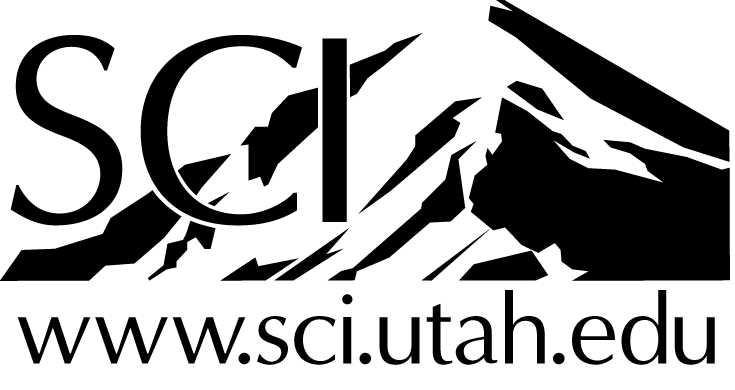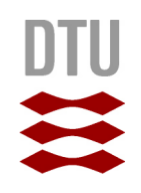Invited Speakers
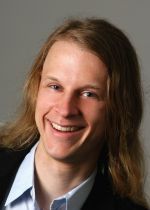
Jonathan Shewchuk is an Associate Professor in the Department of Electrical
Engineering and Computer Sciences at UC Berkeley. He is best known for his
software Triangle for high-quality triangular mesh generation, which won the
2003 James Hardy Wilkinson Prize in Numerical Software, and his "Introduction
to the Conjugate Gradient Method Without the Agonizing Pain."
Talk abstract

Nic Smith is Professor and Head of Department of Biomedical Engineering at Kings College London and is also Visiting Professor of Computational Physiology at the University of Oxford. His research is characterised by the development of integrated multi-scale and multi-physics models mainly of the heart, which provide the ability to link biophysically detailed experimental data to integrated function from sub-cellular to the whole organ level. Within the scope of this work he has developed computational techniques to enable specific model developments that have in turn been applied to provide insight into cardiac physiology. His research has been focused on cardiac electrophysiology and contraction at the cellular level, and the multi-scale translation of these models to enable coronary blood flow, cardiac electro-mechanics and coupled tissue mechanics-ventricular blood flow simulations at the organ level.
Nic is currently a central contributor to the Virtual Physiological Human (VPH) Project sponsored by the European Commission working to develop integrated multi-scale computational models of organ systems. He has taken a leading role in promoting the significance and optimization of the connection between data and model parameters. He is the scientific coordinator of euHeart an FP7 Integrated Project focused on developing multi-scale, multi-physics cardiac models which involves 18 academic, clinical and industrial partners across Europe. In addition to euHeart he hold grants from the EPSRC, BBSRC, MRC as Principle Investigator and is an EPSRC leadership fellow.
Talk abstract
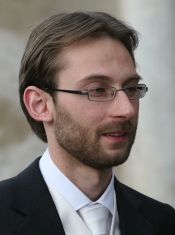
Michael Bronstein is an assistant professor in the Institute of
Computational Science, Faculty of Informatics, University of Lugano,
Switzerland. Previously, he had a visiting appointment in the Department
of Computer Science at Stanford university. Michael holds a B.Sc. from the
Department of Electrical Engineering in 2002 and Ph.D. from the Department
of Computer Science, Technion (Israel Institute of Technology) in 2007.
His main research interests are theoretical and computational methods in
metric geometry and their application to problems in computer vision,
pattern recognition, shape analysis, computer graphics, image processing,
and machine learning. He has authored over 70 publications in leading
journals and conferences, over 20 patents, and the book "Numerical
geometry of non-rigid shapes" (published by Springer Verlag). His research
was recognize by numerous awards and prizes and was featured in CNN, SIAM
News, Wired, and in the Abel lecture given in Oslo in honor of the 2009
Abel Prize laureate Mikhail Gromov. Michael Bronstein was the co-chair of
the Workshop on Non-rigid shapes and deformable image alignment (NORDIA)
in 2008-2011 and of the International Conference on n Scale Space and
Variational Methods in Computer Vision (SSVM) in 2011, and has served on
review and program committees of conferences in his field. In addition to
academic activities, in 2004-2009 he served as a scientist and Vice
President of video technology at the Silicon Valley start-up company
Novafora Inc, leading a team of researchers and engineers developing
Internet-scale computer vision and video analysis applications. Technology
developed by Dr. Bronstein has been used in the foundation of several
start-up companies, in which he is involved as advisor and co-founder.
Talk abstract
Organisers
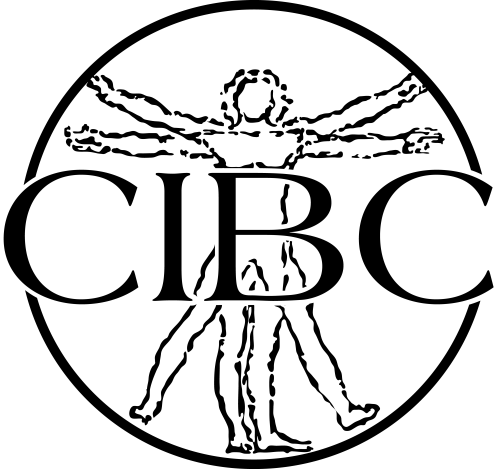
Program Committee
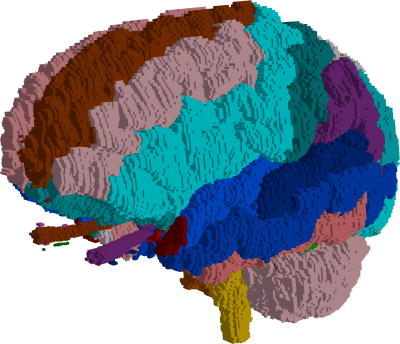
- Pierre Alliez, INRIA Sophia-Antipolis, France
- Jakob Andreas Bærentzen, Technical University of Denmark, Denmark
- Andrey Chernikov, Old Dominion University, USA
- Gary Christensen, University of Iowa, USA
- Tim Cootes, University of Manchester, UK
- Tron Darvann, Copenhagen University, Denmark
- Tobias Heimann, German Cancer Research Center, Germany
- Luis Ibanez, Kitware, USA
- Michael Kazhdan, Johns Hopkins University, USA
- Steen Markvorsen, Technical University of Denmark, Denmark
- Mads Nielsen, Copenhagen University, Denmark
- Sebastien Ourselin, University College London, UK
- Sylvain Prima, IRISA / INRIA Rennes, France
- Mauricio Reyes, University of Bern, Switzerland
- Daniel Rueckert, Imperial College London, UK
- Anuj Srivastava, Florida State University, USA
- Martin Styner, University of North Carolina at Chapel Hill, USA
- Guoliang Xu, Chinese Academy of Sciences, China
- Lilla Zöllei, Harvard Medical School, USA
- Lasse Riis Østergaard, Aalborg University, Denmark
 Jonathan Shewchuk is an Associate Professor in the Department of Electrical
Engineering and Computer Sciences at UC Berkeley. He is best known for his
software Triangle for high-quality triangular mesh generation, which won the
2003 James Hardy Wilkinson Prize in Numerical Software, and his "Introduction
to the Conjugate Gradient Method Without the Agonizing Pain."
Talk abstract
Jonathan Shewchuk is an Associate Professor in the Department of Electrical
Engineering and Computer Sciences at UC Berkeley. He is best known for his
software Triangle for high-quality triangular mesh generation, which won the
2003 James Hardy Wilkinson Prize in Numerical Software, and his "Introduction
to the Conjugate Gradient Method Without the Agonizing Pain."
Talk abstract
 Nic Smith is Professor and Head of Department of Biomedical Engineering at Kings College London and is also Visiting Professor of Computational Physiology at the University of Oxford. His research is characterised by the development of integrated multi-scale and multi-physics models mainly of the heart, which provide the ability to link biophysically detailed experimental data to integrated function from sub-cellular to the whole organ level. Within the scope of this work he has developed computational techniques to enable specific model developments that have in turn been applied to provide insight into cardiac physiology. His research has been focused on cardiac electrophysiology and contraction at the cellular level, and the multi-scale translation of these models to enable coronary blood flow, cardiac electro-mechanics and coupled tissue mechanics-ventricular blood flow simulations at the organ level.
Nic is currently a central contributor to the Virtual Physiological Human (VPH) Project sponsored by the European Commission working to develop integrated multi-scale computational models of organ systems. He has taken a leading role in promoting the significance and optimization of the connection between data and model parameters. He is the scientific coordinator of euHeart an FP7 Integrated Project focused on developing multi-scale, multi-physics cardiac models which involves 18 academic, clinical and industrial partners across Europe. In addition to euHeart he hold grants from the EPSRC, BBSRC, MRC as Principle Investigator and is an EPSRC leadership fellow.
Talk abstract
Nic Smith is Professor and Head of Department of Biomedical Engineering at Kings College London and is also Visiting Professor of Computational Physiology at the University of Oxford. His research is characterised by the development of integrated multi-scale and multi-physics models mainly of the heart, which provide the ability to link biophysically detailed experimental data to integrated function from sub-cellular to the whole organ level. Within the scope of this work he has developed computational techniques to enable specific model developments that have in turn been applied to provide insight into cardiac physiology. His research has been focused on cardiac electrophysiology and contraction at the cellular level, and the multi-scale translation of these models to enable coronary blood flow, cardiac electro-mechanics and coupled tissue mechanics-ventricular blood flow simulations at the organ level.
Nic is currently a central contributor to the Virtual Physiological Human (VPH) Project sponsored by the European Commission working to develop integrated multi-scale computational models of organ systems. He has taken a leading role in promoting the significance and optimization of the connection between data and model parameters. He is the scientific coordinator of euHeart an FP7 Integrated Project focused on developing multi-scale, multi-physics cardiac models which involves 18 academic, clinical and industrial partners across Europe. In addition to euHeart he hold grants from the EPSRC, BBSRC, MRC as Principle Investigator and is an EPSRC leadership fellow.
Talk abstract
 Michael Bronstein is an assistant professor in the Institute of
Computational Science, Faculty of Informatics, University of Lugano,
Switzerland. Previously, he had a visiting appointment in the Department
of Computer Science at Stanford university. Michael holds a B.Sc. from the
Department of Electrical Engineering in 2002 and Ph.D. from the Department
of Computer Science, Technion (Israel Institute of Technology) in 2007.
His main research interests are theoretical and computational methods in
metric geometry and their application to problems in computer vision,
pattern recognition, shape analysis, computer graphics, image processing,
and machine learning. He has authored over 70 publications in leading
journals and conferences, over 20 patents, and the book "Numerical
geometry of non-rigid shapes" (published by Springer Verlag). His research
was recognize by numerous awards and prizes and was featured in CNN, SIAM
News, Wired, and in the Abel lecture given in Oslo in honor of the 2009
Abel Prize laureate Mikhail Gromov. Michael Bronstein was the co-chair of
the Workshop on Non-rigid shapes and deformable image alignment (NORDIA)
in 2008-2011 and of the International Conference on n Scale Space and
Variational Methods in Computer Vision (SSVM) in 2011, and has served on
review and program committees of conferences in his field. In addition to
academic activities, in 2004-2009 he served as a scientist and Vice
President of video technology at the Silicon Valley start-up company
Novafora Inc, leading a team of researchers and engineers developing
Internet-scale computer vision and video analysis applications. Technology
developed by Dr. Bronstein has been used in the foundation of several
start-up companies, in which he is involved as advisor and co-founder.
Talk abstract
Michael Bronstein is an assistant professor in the Institute of
Computational Science, Faculty of Informatics, University of Lugano,
Switzerland. Previously, he had a visiting appointment in the Department
of Computer Science at Stanford university. Michael holds a B.Sc. from the
Department of Electrical Engineering in 2002 and Ph.D. from the Department
of Computer Science, Technion (Israel Institute of Technology) in 2007.
His main research interests are theoretical and computational methods in
metric geometry and their application to problems in computer vision,
pattern recognition, shape analysis, computer graphics, image processing,
and machine learning. He has authored over 70 publications in leading
journals and conferences, over 20 patents, and the book "Numerical
geometry of non-rigid shapes" (published by Springer Verlag). His research
was recognize by numerous awards and prizes and was featured in CNN, SIAM
News, Wired, and in the Abel lecture given in Oslo in honor of the 2009
Abel Prize laureate Mikhail Gromov. Michael Bronstein was the co-chair of
the Workshop on Non-rigid shapes and deformable image alignment (NORDIA)
in 2008-2011 and of the International Conference on n Scale Space and
Variational Methods in Computer Vision (SSVM) in 2011, and has served on
review and program committees of conferences in his field. In addition to
academic activities, in 2004-2009 he served as a scientist and Vice
President of video technology at the Silicon Valley start-up company
Novafora Inc, leading a team of researchers and engineers developing
Internet-scale computer vision and video analysis applications. Technology
developed by Dr. Bronstein has been used in the foundation of several
start-up companies, in which he is involved as advisor and co-founder.
Talk abstract


